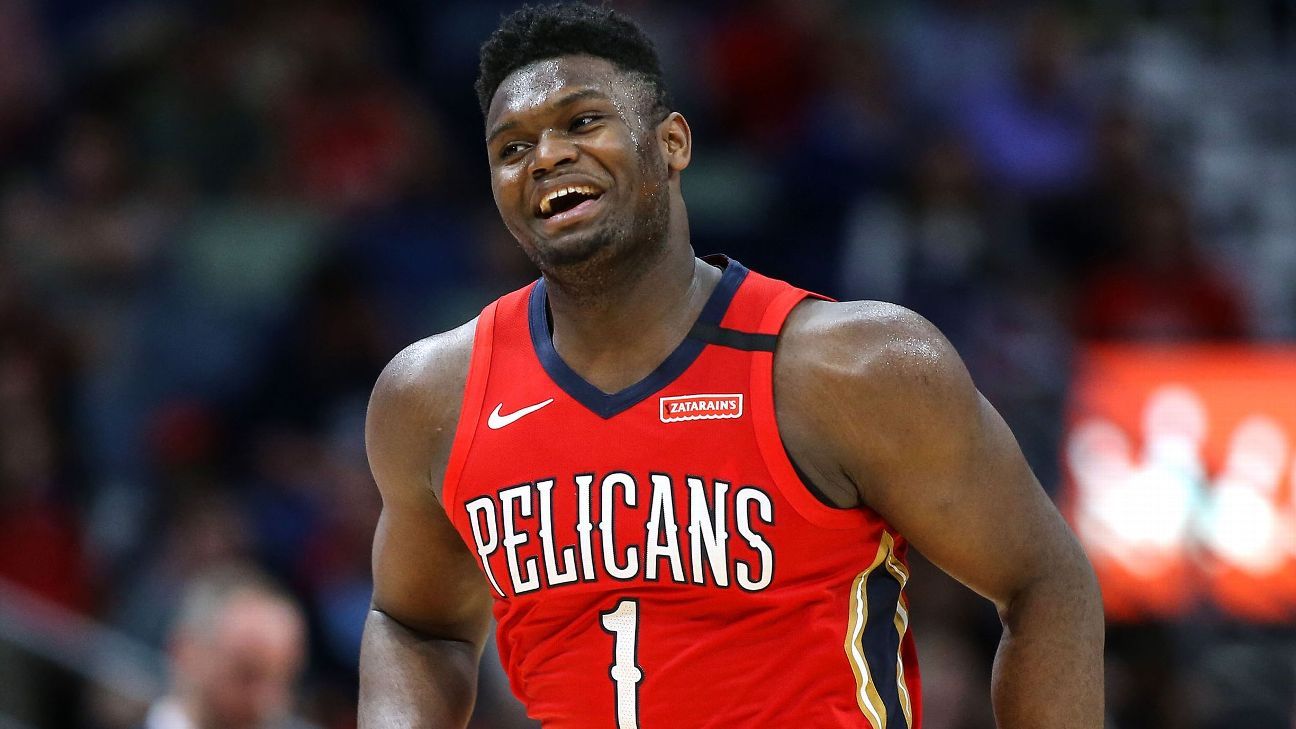
New Orleans Pelicans rookie Zion Williamson's lawyers have asked a federal judge in North Carolina to void his marketing agreement with Gina Ford and Prime Sports Marketing, who sued him for $100 million in damages for breaching their contract.
In a motion filed Wednesday in U.S. District Court in Winston-Salem, North Carolina, Williamson's attorneys restated their argument that the NBA star's marketing agreement wasn't valid because Ford wasn't a registered agent in North Carolina, and the contract didn't include a warning that was required by a state law designed to protect amateur athletes from unscrupulous agents.
"Quite simply, Defendants have admitted facts sufficient to establish that Mr. Williamson was a 'student-athlete' during the basketball season when they were directly and indirectly recruiting or soliciting him and holding themselves out to be athlete agents without having registered as such," Williamson's attorneys wrote in the motion for partial judgment. "Such conduct is sufficient to -- and did -- void the Agreement. Defendants further violated the UAAA when they entered into the Agreement, which lacked the required notice provision. The Agreement is accordingly void."
Williamson, who played one season at Duke before becoming the No. 1 pick in the 2019 NBA draft, sued Ford and Prime Sports in June in an attempt to terminate his marketing agreement with her company.
The same month, Ford and Prime Sports Marketing sued Williamson, Creative Artists Agency (CAA) and two of its employees in a Florida court, alleging that CAA interfered with Prime Sports' deal with Williamson and that he breached their five-year contract.
Last week, Ford's lawyers asked Williamson to admit that his mother and stepfather demanded and received gifts, money and other benefits from persons acting on behalf of Adidas and Nike and from people associated with Duke to influence him to sign with the Blue Devils and to wear Nike or Adidas products.
"The undisputed facts in the pleadings establish that the Agreement is void under the North Carolina Uniform Athlete Agents Act (the 'UAAA')," Wester wrote in the motion on Wednesday.
"The UAAA, like its parallel statutes in the more than 40 states and territories that have enacted the model statute on which the UAAA is based, protects student-athletes during and after the agent recruitment and negotiation process. These statutes recognize the vulnerability of young student-athletes and attempt to aid their transition to professional sports by preventing manipulative, underhanded behavior from athlete agents who prey on student-athletes' youth, and the athletes' and their families' inexperience in the industry."















 Phone: (800) 737. 6040
Phone: (800) 737. 6040 Fax: (800) 825 5558
Fax: (800) 825 5558 Website:
Website:  Email:
Email: 






